Innovation of TZIELD
TZIELD is the first and only approved, disease-modifying treatment to delay the onset of stage 3 T1D (insulin-dependence) in those 8 years and older with stage 2 T1D.1,2


You can't control IF Stage 3 T1D will occur, but you can impact WHEN3
Patients with ≥2 islet AAbs will inevitably progress to be insulin dependent.


For the first time ever, you can choose to impact an underlying autoimmune process of T1D and delay when insulin will be required.1,2


*Without screening.5
T1D progresses through 3 stages3
MECHANISM OF ACTION
TZIELD is an anti-CD3 monoclonal antibody1
- TZIELD binds to CD3 antigens on the surface of T cells
- The mechanism of action may involve the partial agonistic signaling and deactivation of autoreactive T cells that target pancreatic beta cells
- TZIELD leads to an increase in the proportion of regulatory T cells and of exhausted CD8+ T cells in peripheral blood
NARRATOR: I’m Dr Diane Craig, a pediatric endocrinologist. I’ve managed hundreds of children living with type 1 diabetes, also known as T1D (tee-one-dee), many of them arriving at my office after being hospitalized with diabetic (di·a·bet·ic) ketoacidosis (ke·to·ac·i·do·sis), or DKA (dee-kay-ay); the entire family scared and trying to adapt quickly to the sudden and unexpected burdens of a T1D diagnosis.
NARRATOR: But the paradigm is evolving. Healthcare professionals, including endocrinologists, PCPs, and pediatricians can now test for pancreatic islet (eye-let) autoantibodies, identifying those with T1D earlier in the disease process, before visible signs and symptoms. Early identification allows for proactive monitoring, which can potentially reduce their risk of DKA.
NARRATOR: And, for the first time ever, Patients aged 8 years and older with Stage 2 T1D may be eligible for TZIELD (tee-zield), a treatment option that can potentially delay the onset of Stage 3 T1D, when insulin will be eventually required.
NARRATOR: Proactive T1D screening not only reduces the risk of DKA through continued monitoring, but is the first step to identifying patients who may be appropriate for TZIELD intervention.
NARRATOR: The American Diabetes Association (ADA) recommends screening those at risk of T1D for 4 available islet autoantibodies— GADA (Gad), ZnT8A (Zinc Transporter 8) , IA-2A (EYE-A-2), and IAA (Insulin Autoantibody)
NARRATOR: A fifth islet autoantibody, ICA (eye-see-A), is also available.
NARRATOR: Once a patient tests positive for 2 or more of these islet autoantibodies, it’s a signal that an autoimmune attack on the beta cells has begun.
NARRATOR: A positive T1D screening, along with glycemic testing, confirms T1D diagnosis and stage. Patients diagnosed with Stage 1 or 2 T1D will inevitably progress to Stage 3, requiring exogenous insulin for the remainder of their lives.
NARRATOR: According to the ADA, patients who screen positive for multiple islet autoantibodies should be evaluated and monitored further.
NARRATOR: By assessing patient glycemic levels, we can understand the metabolic impact of their beta-cell destruction and their disease between Stages 1, 2, or 3.
NARRATOR: Stage 1 patients are positive for 2 or more islet autoantibodies but are normoglycemic, with enough functional beta cells to maintain glucose homeostasis.
NARRATOR: As beta-cell destruction continues and T1D progresses, in addition to 2 or more autoantibodies being present, patients exhibit fasting plasma glucose levels between 100 and 125 milligrams per deciliter and are considered dysglycemic.
NARRATOR: These patients are in Stage 2. In both Stage 1 and Stage 2, there remains sufficient beta-cell function to produce enough insulin to maintain adequate blood glucose levels so that patients are without signs or symptoms.
NARRATOR: But by the time a patient progresses to Stage 3, their beta-cell function is insufficient to produce enough insulin for normal body function and patients present with clinical signs and symptoms indicative of overt hyperglycemia.
NARRATOR: Patients in Stage 3 T1D have lost the ability to naturally produce the amount of insulin that their body needs to maintain glucose homeostasis and inevitably require lifelong insulin replacement therapy.
NARRATOR: But if these patients are identified while in Stage 2 T1D, there is an opportunity to potentially delay the onset of Stage 3 with TZIELD.
NARRATOR: In patients aged 8 years and older with Stage 2 TID, TZIELD is designed to impact an underlying autoimmune process of T1D, and may delay the onset of Stage 3.
NARRATOR: It is believed that TZIELD may preserve some beta-cell function by binding with CD3 receptors on the surface of autoreactive T cells leading to deactivation. TZIELD is also believed to promote immune tolerance through the induction of regulatory and exhausted T cells and by reducing the expansion of antigen-specific memory T cells.
NARRATOR: The value TZIELD brings to people in Stage 2 is that it offers them the chance to delay disease progression to Stage 3 T1D. And in doing so, may give them more time for T1D education, support, and for future treatment options to emerge.
NARRATOR: TZIELD can have serious adverse reactions, including cytokine (cy-toe-kyne) release syndrome, serious infections, lymphopenia, hypersensitivity reactions.
NARRATOR: and interactions with some vaccinations and may affect how well they work.
NARRATOR: Most common adverse reactions (>10%) were lymphopenia, rash, leukopenia, and headache.
NARRATOR: There is currently no evidence that TZIELD will have any effect on burden of disease, outcomes, or life expectancy.
NARRATOR: The paradigm of T1D treatment is evolving. We’ve now entered an exciting era of what we’re able to offer patients so they can be proactive in their T1D management.
NARRATOR: If you want to learn more about the efficacy data and safety profile of TZIELD in patients aged 8 years and older with Stage 2 T1D, visit www.tzieldhcp.com
Value of screening and TZIELD
Identifying patients' risk via screening and monitoring to potentially impact when they progress.

Value of proactive screening4,6-8
- Reduces DKA risk and associated mortality
- Allows time to prepare and build a support network
- Allows time for treatment considerations

Value of TZIELD1,4,7
- Delays the onset of Stage 3, when disease management becomes burdensome and lifestyle can become impacted
- Offers time to seek T1D education and support
- Provides more time for future treatments to become available
The ADA recommends that TZIELD should be discussed with selected individuals aged 8 years and older with Stage 2 T1D.9
There is currently no evidence to suggest that TZIELD will have any effect on burden of disease, outcomes, or life expectancy.
Important Safety Information Anchor
INDICATION
TZIELD is a CD3-directed monoclonal antibody indicated to delay the onset of Stage 3 type 1 diabetes (T1D) in adults and pediatric patients aged 8 years and older with Stage 2 T1D.
IMPORTANT SAFETY INFORMATION
WARNINGS AND PRECAUTIONS
- Cytokine Release Syndrome (CRS): CRS occurred in TZIELD-treated patients during the treatment period and through 28 days after the last drug administration. Prior to TZIELD treatment, premedicate with antipyretics, antihistamines and/or antiemetics, and treat similarly if symptoms occur during treatment. If severe CRS develops, consider pausing dosing for 1 day to 2 days and administering the remaining doses to complete the full 14-day course on consecutive days; or discontinue treatment. Monitor liver enzymes during treatment. Discontinue TZIELD treatment in patients who develop elevated alanine aminotransferase or aspartate aminotransferase more than 5 times the upper limit of normal (ULN) or bilirubin more than 3 times ULN.
- Serious Infections: Use of TZIELD is not recommended in patients with active serious infection or chronic infection other than localized skin infections. Monitor patients for signs and symptoms of infection during and after TZIELD administration. If serious infection develops, treat appropriately, and discontinue TZIELD.
- Lymphopenia: Lymphopenia occurred in most TZIELD-treated patients. For most patients, lymphocyte levels began to recover after the fifth day of treatment and returned to pretreatment values within two weeks after treatment completion and without dose interruption. Monitor white blood cell counts during the treatment period. If prolonged severe lymphopenia develops (<500 cells per mcL lasting 1 week or longer), discontinue TZIELD.
- Hypersensitivity Reactions: Acute hypersensitivity reactions including serum sickness, angioedema, urticaria, rash, vomiting and bronchospasm occurred in TZIELD-treated patients. If severe hypersensitivity reactions occur, discontinue TZIELD and treat promptly.
- Vaccinations: The safety of immunization with live-attenuated (live) vaccines with TZIELD-treated patients has not been studied. TZIELD may interfere with immune response to vaccination and decrease vaccine efficacy. Administer all age-appropriate vaccinations prior to starting TZIELD.
- Administer live vaccines at least 8 weeks prior to treatment. Live vaccines are not recommended during treatment, or up to 52 weeks after treatment.
- Administer inactivated (killed) vaccines or mRNA vaccines at least 2 weeks prior to treatment. Inactivated vaccines are not recommended during treatment or 6 weeks after completion of treatment.
ADVERSE REACTIONS
Most common adverse reactions (>10%) were lymphopenia, rash, leukopenia, and headache.
USE IN SPECIFIC POPULATIONS
- Pregnancy: May cause fetal harm.
- Lactation: A lactating woman may consider pumping and discarding breast milk during and for 20 days after TZIELD administration.
Please see full Prescribing Information, including patient selection criteria, and Medication Guide. View Important Safety Information page.
REFERENCES
- TZIELD Prescribing Information. Provention Bio, Inc; 2023.
- diaTribe Learn. FDA approves Tzield (teplizumab) to delay type 1 diabetes. Published November 17, 2022. Updated November 21, 2022. https://diatribe.org/diabetes-medications/fda-approves-tzield-teplizumab-delay-type-1-diabetes
- Insel RA, Dunne JL, Atkinson MA, et al. Staging presymptomatic type 1 diabetes: A scientific statement of JDRF, the Endocrine Society, and the American Diabetes Association. Diabetes Care. 2015;38(10):1964-1974.
- Scheiner G, Weiner S, Kruger DF, Pettus J. Screening for type 1 diabetes: Role of the diabetes care and education specialist. ADCES Pract. 2022;10(5):20-25.
- Beliard K, Ebekozien O, Demeterco-Berggren C, et al. Increased DKA at presentation among newly diagnosed type 1 diabetes patients with or without COVID-19: Data from a multi-site surveillance registry. J Diabetes. 2021;13(3):270-272.
- Elding Larsson H, Vehik K, Bell R, et al. Reduced prevalence of diabetic ketoacidosis at diagnosis of type 1 diabetes in young children participating in longitudinal follow-up. Diabetes Care. 2011;34(11):2347-2352.
- Edelman S. Early intervention by family physicians to delay type 1 diabetes. J Fam Pract. 2023;72(6 suppl):S19-S24.
- Barker JM, Goehrig SH, Barriga K, et al; DAISY study. Clinical characteristics of children diagnosed with type 1 diabetes through intensive screening and follow-up. Diabetes Care. 2004;27(6):1399-1404.
- American Diabetes Association Professional Practice Committee. Prevention or delay of diabetes and associated comorbidities: standards of care in diabetes—2025. Diabetes Care. 2025;(48)(Suppl 1): S50-S58.
INDICATION
IMPORTANT SAFETY INFORMATION
INDICATION
TZIELD is a CD3-directed monoclonal antibody indicated to delay the onset of Stage 3 type 1 diabetes (T1D) in adults and pediatric patients aged 8 years and older with Stage 2 T1D.
IMPORTANT SAFETY INFORMATION
WARNINGS AND PRECAUTIONS
- Cytokine Release Syndrome (CRS): CRS occurred in TZIELD-treated patients during the treatment period and through 28 days after the last drug administration. Prior to TZIELD treatment, premedicate with antipyretics, antihistamines and/or antiemetics, and treat similarly if symptoms occur during treatment. If severe CRS develops, consider pausing dosing for 1 day to 2 days and administering the remaining doses to complete the full 14-day course on consecutive days; or discontinue treatment. Monitor liver enzymes during treatment. Discontinue TZIELD treatment in patients who develop elevated alanine aminotransferase or aspartate aminotransferase more than 5 times the upper limit of normal (ULN) or bilirubin more than 3 times ULN.
- Serious Infections: Use of TZIELD is not recommended in patients with active serious infection or chronic infection other than localized skin infections. Monitor patients for signs and symptoms of infection during and after TZIELD administration. If serious infection develops, treat appropriately, and discontinue TZIELD.
- Lymphopenia: Lymphopenia occurred in most TZIELD-treated patients. For most patients, lymphocyte levels began to recover after the fifth day of treatment and returned to pretreatment values within two weeks after treatment completion and without dose interruption. Monitor white blood cell counts during the treatment period. If prolonged severe lymphopenia develops (<500 cells per mcL lasting 1 week or longer), discontinue TZIELD.
- Hypersensitivity Reactions: Acute hypersensitivity reactions including serum sickness, angioedema, urticaria, rash, vomiting and bronchospasm occurred in TZIELD-treated patients. If severe hypersensitivity reactions occur, discontinue TZIELD and treat promptly.
- Vaccinations: The safety of immunization with live-attenuated (live) vaccines with TZIELD-treated patients has not been studied. TZIELD may interfere with immune response to vaccination and decrease vaccine efficacy. Administer all age-appropriate vaccinations prior to starting TZIELD.
- Administer live vaccines at least 8 weeks prior to treatment. Live vaccines are not recommended during treatment, or up to 52 weeks after treatment.
- Administer inactivated (killed) vaccines or mRNA vaccines at least 2 weeks prior to treatment. Inactivated vaccines are not recommended during treatment or 6 weeks after completion of treatment.
ADVERSE REACTIONS
Most common adverse reactions (>10%) were lymphopenia, rash, leukopenia, and headache.
USE IN SPECIFIC POPULATIONS
- Pregnancy: May cause fetal harm.
- Lactation: A lactating woman may consider pumping and discarding breast milk during and for 20 days after TZIELD administration.
Please see full Prescribing Information, including patient selection criteria, and Medication Guide. View Important Safety Information page.

